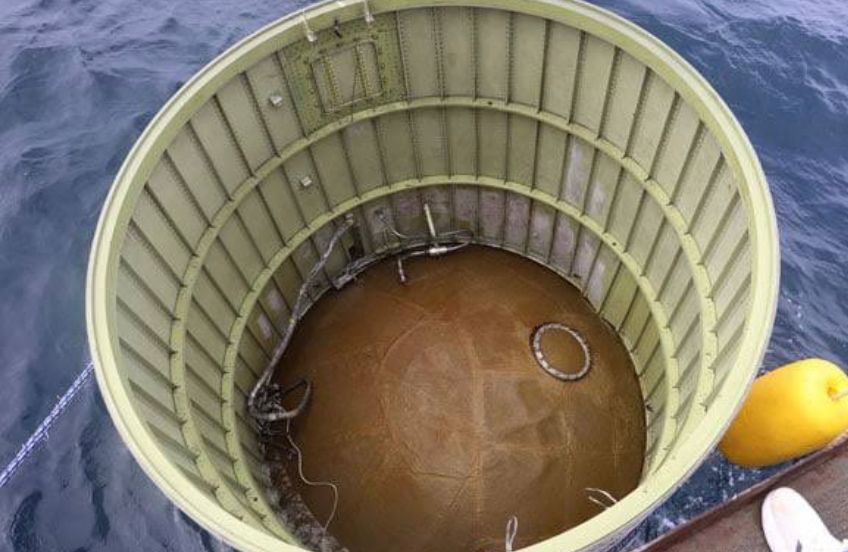A North Korean rocket carrying a satellite plummeted into the sea after a failed launch, resulting in the loss of Kim Jong Un’s aspirations to deploy a spy orbiter into space. South Korean military officials are currently recovering the wreckage of the rocket and its payload, while experts assess the implications of the failed mission.
Despite United Nations resolutions explicitly prohibiting the use of such technology, North Korea’s leader, Kim Jong Un, has been determined to develop a spy satellite as a means of monitoring the military activities of the United States and its allies. However, the rocket experienced a loss of thrust, leading to its plunge into the sea along with the satellite payload, according to the Korean Central News Agency.
The launch’s failure has prompted North Korean authorities to investigate the “serious defects” that were revealed and plan for another test in the near future. The South Korean military has managed to locate and salvage a portion of the debris, which includes a large barrel-like metal structure believed to be a liquid fuel tank.
The recovered debris will provide valuable insights into North Korea’s capabilities with large, multi-stage boosters, according to analysts. The launch caused panic and confusion among the public, as city authorities issued an emergency evacuation alert and sounded air raid sirens in the downtown area.
South Korea and the United States swiftly condemned the launch, highlighting its violation of numerous UN resolutions that prohibit Pyongyang from conducting tests involving ballistic missile technology. United Nations Secretary-General Antonio Guterres called on North Korea to cease such acts and return to the negotiating table, emphasizing that any launch employing ballistic missile technology is contrary to relevant Security Council resolutions.
The shared technology between long-range missiles and space rockets means that the ability to place a satellite into orbit could provide cover for testing banned intercontinental ballistic missiles (ICBMs), according to analysts. In the past, North Korea referred to ballistic missile tests as satellite launches, with some projectiles flying over Japan’s southern Okinawa region.
Since diplomatic efforts collapsed in 2019, North Korea has intensified its military development, conducting a series of prohibited weapons tests, including multiple ICBM launches. Kim Jong Un declared his country an “irreversible” nuclear power last year and called for an “exponential” increase in weapons production, including tactical nuclear weapons.
The failed rocket launch not only represents a setback for North Korea’s ambitions but also raises concerns within the international community regarding the country’s ongoing pursuit of advanced military capabilities. The incident serves as a reminder of the need for diplomatic resolutions to address the escalating tensions on the Korean Peninsula.














